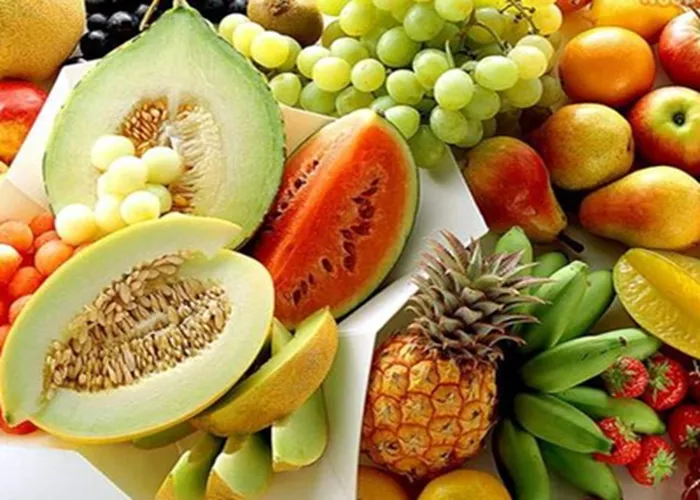Losing weight is a common goal for many individuals, and combining weightlifting with a proper diet can be an effective strategy to achieve this. This article will provide you with a comprehensive guide on what to eat when lifting weights for weight loss, ensuring that your nutritional intake supports your fitness goals while promoting overall health.
Understanding the Basics of Weight Loss
Before diving into the specifics of what to eat, it’s crucial to understand the basics of weight loss. Weight loss occurs when the calories you consume are less than the calories you burn. This principle, known as energy balance, is fundamental to any weight loss plan.
When lifting weights, you’re not only burning calories during the workout but also building muscle mass, which can increase your resting metabolic rate (RMR). Muscle tissue requires more energy to maintain than fat tissue, meaning that having more muscle can help you burn more calories even at rest.
The Role of Diet in Weight Loss
Diet plays a pivotal role in weight loss, especially when combined with exercise. A balanced diet provides the necessary nutrients for muscle growth and repair, supports energy levels, and helps maintain a healthy metabolism.
Calorie Control
Controlling calorie intake is essential for weight loss. You need to create a calorie deficit by consuming fewer calories than you burn. However, this doesn’t mean starving yourself. A sustainable calorie deficit is typically around 500-1,000 calories per day, which can lead to weight loss of about 0.5-1 kilogram per week.
Macronutrient Balance
Macronutrients—proteins, carbohydrates, and fats—are the building blocks of your diet. Each has a unique role in supporting weight loss and muscle growth.
Proteins: Proteins are crucial for muscle repair and growth. They also increase satiety, helping you feel full longer. Good sources of protein include chicken, fish, beans, eggs, and low-fat dairy products. Aim for 1.2-2.0 grams of protein per kilogram of body weight per day.
Carbohydrates: Carbohydrates are your body’s primary source of energy. Choose complex carbohydrates like whole grains, vegetables, and fruits, which provide sustained energy and fiber, helping you stay full longer. Avoid refined carbohydrates like white bread and sugar, which can cause blood sugar spikes and crashes.
Fats: Healthy fats are essential for hormone production, cell health, and nutrient absorption. Focus on monounsaturated and polyunsaturated fats found in olive oil, nuts, seeds, and fatty fish. Limit saturated and trans fats.
What to Eat Before and After Weightlifting
Timing your meals around your workouts can significantly impact your performance and recovery.
Pre-Workout Meal
A pre-workout meal should be consumed 1-2 hours before lifting weights. It should be light but nutritious, providing enough energy to fuel your workout without causing discomfort.
- Example: A whole-grain wrap with lean turkey, spinach, and a small amount of hummus.
- Key Nutrients: Complex carbohydrates for energy, protein for muscle repair, and healthy fats for sustained energy.
Post-Workout Meal
After weightlifting, your muscles need nutrients to repair and grow. The post-workout meal should be consumed within 30-60 minutes of finishing your workout.
- Example: A smoothie made with Greek yogurt, banana, spinach, and a scoop of protein powder.
- Key Nutrients: Protein for muscle synthesis, carbohydrates to replenish glycogen stores, and a bit of healthy fat for balance.
Sample Meal Plan for Weight Loss and Muscle Gain
Here’s a sample meal plan that balances calorie control with macronutrient needs for weight loss and muscle gain:
Breakfast: Greek yogurt with berries and a tablespoon of chia seeds.
Nutrients: High in protein, fiber, and healthy fats.
Mid-Morning Snack: A handful of almonds and an apple.
Nutrients: Provides a mix of healthy fats, protein, and carbohydrates.
Lunch: Grilled chicken salad with mixed greens, cherry tomatoes, cucumbers, and a vinaigrette dressing.
Nutrients: Lean protein, fiber, and essential vitamins and minerals.
Pre-Workout Snack: A banana and a small handful of trail mix.
Nutrients: Quick-digesting carbohydrates and a bit of protein and healthy fats.
Post-Workout Meal: Smoothie with spinach, banana, Greek yogurt, and protein powder.
Nutrients: High in protein, carbohydrates, and some healthy fats.
Dinner: Baked salmon with quinoa and steamed broccoli.
Nutrients: Lean protein, complex carbohydrates, and fiber.
Evening Snack (if needed): A small serving of cottage cheese with pineapple chunks.
Nutrients: Additional protein and a touch of natural sweetness.
Additional Tips for Successful Weight Loss
Stay Hydrated
Water is crucial for maintaining hydration, aiding digestion, and transporting nutrients to your cells. Aim to drink at least 8 cups (2 liters) of water per day, and increase your intake if you’re exercising or in a hot climate.
Mindful Eating
Practice mindful eating by paying attention to your hunger and fullness cues. Eat slowly, savor each bite, and avoid distractions like watching TV or using your phone during meals. This can help you recognize when you’re full and prevent overeating.
Get Enough Sleep
Adequate sleep is essential for muscle recovery, hormone balance, and overall health. Aim for 7-9 hours of quality sleep per night to support your weight loss and muscle-building efforts.
Stay Consistent
Weight loss and muscle gain are marathons, not sprints. Consistency is key. Stick to your meal plan and workout routine, and make gradual adjustments as needed. Celebrate small victories and stay motivated by tracking your progress.
Conclusion
Combining weightlifting with a balanced diet is an effective strategy for weight loss and muscle gain. By understanding the basics of energy balance, macronutrient needs, and meal timing, you can create a meal plan that supports your fitness goals while promoting overall health. Remember to stay hydrated, practice mindful eating, get enough sleep, and stay consistent to achieve long-term success.
Related topic:


